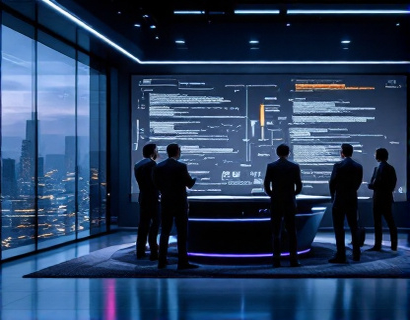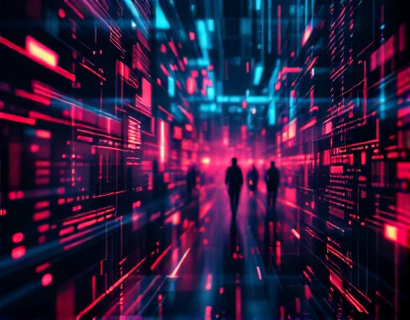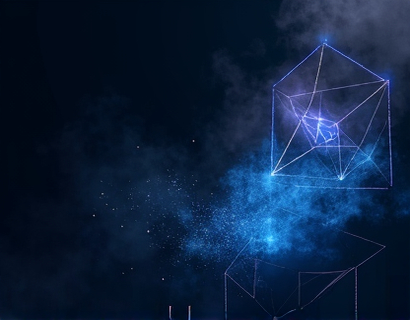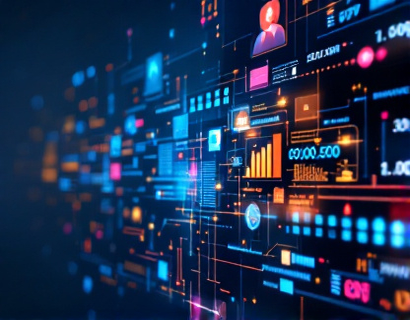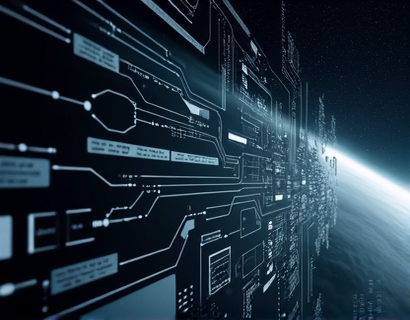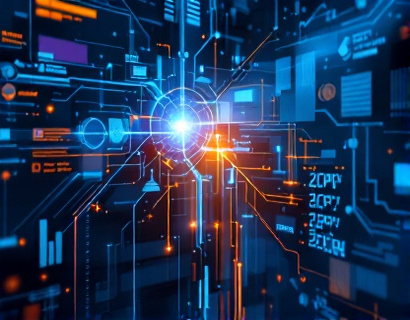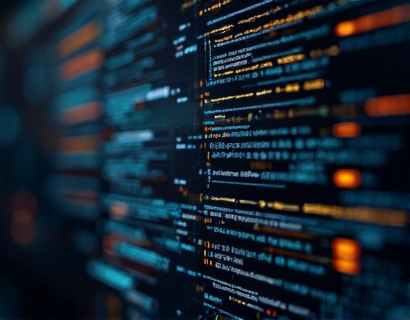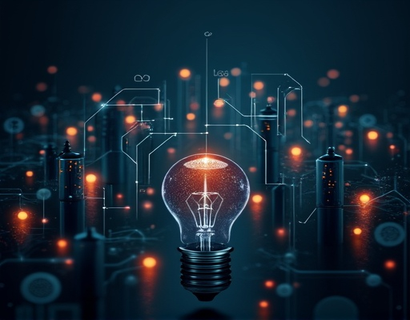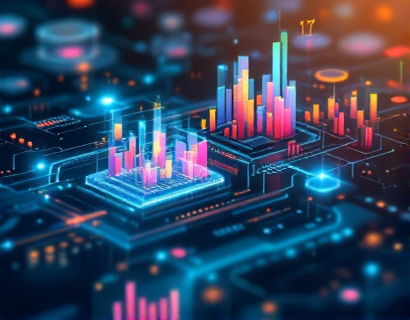Next-Gen Ucosystem Transformations: Harnessing AI and Crypto for Revolutionary Applications
The intersection of artificial intelligence and cryptocurrency is giving birth to a new era of technological advancements, redefining how we interact with digital systems and experiences. This transformative fusion is not just about combining two powerful technologies but creating a synergy that opens up unprecedented possibilities. The next generation of tech-driven applications is leveraging the strengths of both AI and crypto to deliver innovative solutions that were once thought impossible. This article delves into the dynamic world where these technologies converge, exploring the applications and implications for forward-thinking individuals in the crypto and AI space.
The foundation of this new ucosystem is built on blockchain technology, which provides a decentralized and secure framework for AI applications. Blockchain's inherent transparency, immutability, and security features make it an ideal platform for AI systems that require trust and reliability. By integrating AI with blockchain, developers can create applications that are not only intelligent and adaptive but also secure and transparent. This combination is particularly significant in areas such as finance, supply chain management, healthcare, and more, where data integrity and security are paramount.
AI-Driven Blockchain Applications
One of the most promising areas where AI and blockchain intersect is in the development of smart contracts. Traditional smart contracts are limited by their predefined rules and lack the flexibility to adapt to changing conditions. AI-enhanced smart contracts, however, can learn from data and adjust their behavior dynamically. For instance, an AI-driven smart contract in a supply chain can predict delays, optimize routes, and automatically adjust contract terms based on real-time data, ensuring smoother operations and reduced costs.
Another significant application is in the realm of decentralized finance (DeFi). AI algorithms can analyze vast amounts of financial data to identify trends, predict market movements, and optimize trading strategies. When integrated with blockchain, these AI-driven DeFi platforms can offer more efficient, transparent, and secure financial services. Users can benefit from automated investment decisions, risk management, and fraud detection, all while maintaining control over their assets.
Enhanced User Experiences through AI and Crypto
The user experience in digital platforms is being revolutionized by the combination of AI and crypto. Personalization is a key area where these technologies shine. AI algorithms can analyze user behavior, preferences, and historical data to provide highly personalized experiences. In the context of crypto, this means tailored recommendations for investments, customized wallet interfaces, and personalized content feeds. Users enjoy a more intuitive and efficient interaction with digital services, enhancing satisfaction and engagement.
Moreover, AI-powered chatbots and virtual assistants are becoming more prevalent in the crypto space. These AI-driven tools can handle a wide range of tasks, from answering common questions and providing transaction guidance to offering investment advice. By leveraging natural language processing and machine learning, these assistants can understand and respond to user queries in a human-like manner, making complex crypto concepts more accessible to the general public.
Security and Privacy Enhancements
Security and privacy are critical concerns in the crypto world, and AI is playing a pivotal role in addressing these challenges. AI algorithms can detect and prevent fraudulent activities by analyzing patterns and anomalies in transaction data. Machine learning models can identify suspicious behavior and flag potential security threats in real-time, enhancing the overall security of blockchain networks. This proactive approach to security helps build trust among users and fosters the adoption of crypto-based solutions.
Privacy is another area where AI and crypto converge to offer robust solutions. Zero-knowledge proofs, a cryptographic technique, allow users to prove the validity of a statement without revealing the underlying data. When combined with AI, these techniques can be used to create privacy-preserving applications that maintain user anonymity while ensuring data integrity. For example, AI-driven privacy tools can help users manage their digital identities securely, controlling who has access to their personal information and under what conditions.
Innovative Business Models
The integration of AI and crypto is also giving rise to new business models that disrupt traditional industries. One such model is the tokenized economy, where digital tokens represent assets, services, or utility within a blockchain ecosystem. AI can optimize the allocation and trading of these tokens, ensuring efficient resource distribution and fair compensation for participants. This model is particularly relevant in industries like content creation, where AI can help manage copyrights, royalties, and distribution rights through smart contracts.
Another innovative business model is the AI-as-a-Service (AIaaS) platform built on blockchain. These platforms allow businesses to access AI capabilities without the need for extensive infrastructure. By leveraging AI algorithms hosted on a decentralized network, companies can perform complex data analyses, machine learning tasks, and predictive modeling with enhanced security and transparency. This democratization of AI resources empowers small and medium-sized enterprises to compete on a level playing field with larger corporations.
Challenges and Considerations
Despite the numerous benefits, the fusion of AI and crypto is not without its challenges. One of the primary concerns is the regulatory landscape. As both AI and crypto operate in relatively uncharted territories, regulatory frameworks are still evolving. Developers and businesses must navigate a complex web of laws and guidelines to ensure compliance while innovating. Collaboration between industry stakeholders and regulatory bodies is essential to create a balanced and supportive environment for these technologies.
Another challenge is the technical complexity involved in integrating AI with blockchain. Developing scalable and efficient systems that can handle the computational demands of both technologies requires expertise in multiple domains. Additionally, ensuring interoperability between different blockchain platforms and AI frameworks is crucial for widespread adoption. Open standards and collaborative efforts can help address these technical hurdles.
Future Outlook
The future of the ucosystem driven by AI and crypto is promising and full of potential. As these technologies continue to mature, we can expect to see even more innovative applications across various sectors. In healthcare, AI-enhanced blockchain platforms can manage patient data securely, enabling seamless sharing and analysis for better diagnostics and treatment plans. In the Internet of Things (IoT), AI can optimize the management of decentralized devices, ensuring efficient resource utilization and enhanced security.
The convergence of AI and crypto is also paving the way for new forms of decentralized governance and community-driven projects. Token-based governance models allow stakeholders to participate in decision-making processes, fostering a more democratic and inclusive approach to technology development. This shift towards decentralized governance can lead to more resilient and adaptable systems that better serve the needs of their users.
In conclusion, the fusion of AI and crypto is transforming the tech landscape, offering revolutionary applications that enhance security, personalization, and efficiency. As these technologies continue to evolve, they will play a crucial role in shaping the future of digital interactions and experiences. For those interested in the crypto and AI space, staying informed and engaged with these developments is key to harnessing the full potential of the next-generation ucosystem.




